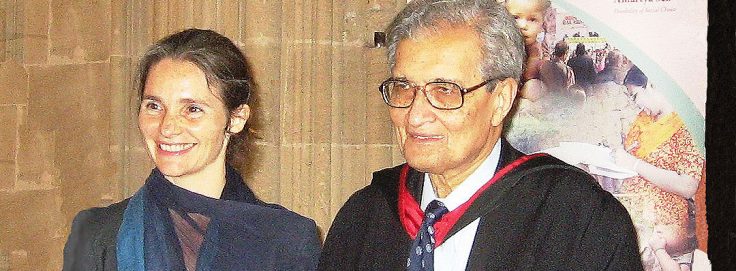
Search
OPHI’s Impact: A Ten-Year Retrospective. Opinion from Amartya Sen

OPHI has been, of course, a great success, and it’s wonderful that on the tenth anniversary of this institution we can look back and see how much has been achieved here.
There’s something extraordinary in the way that OPHI has operated with a very makeshift budget, a very difficult institutional position, where it had to fight for its position and to get support for teaching as well as research, while continuing to help think about problems of deprivation and poverty across the world. This would not have been possible without Sabina Alkire’s leadership.
Amartya Sen received the 1998 Nobel Prize in Economics for his contributions to welfare economics. Thomas W. Lamont University Professor, and Professor of Economics and Philosophy at Harvard University. Member of OPHI’s Advisory Committee.
So I must say that I feel very delighted that we are at the point when we can congratulate OPHI on its really well-established achievement. It’s a fabulous occasion to wish it further progress and great health, and continued illuminating contributions to the world.
The heart of public action lies in a clear-headed understanding of what the problems are, which is what OPHI has explored with the work of Sabina but also James Foster, John Hammock and others. They are really exemplary in terms of what can be done based on a very little, but organised, institutional resource base. It gives hope to everyone in the world that if you are really dedicated you can do a lot. OPHI is a true inspiration in this respect. I’m delighted to be able to congratulate OPHI for what it has done and what it is continuing to do.
Article is based on an interview with Amartya Sen by Felipe Roa-Clavijo.
Published in Dimensions Special Issue – June 2018
















